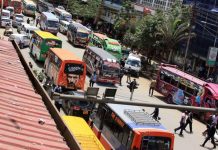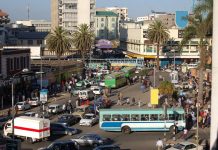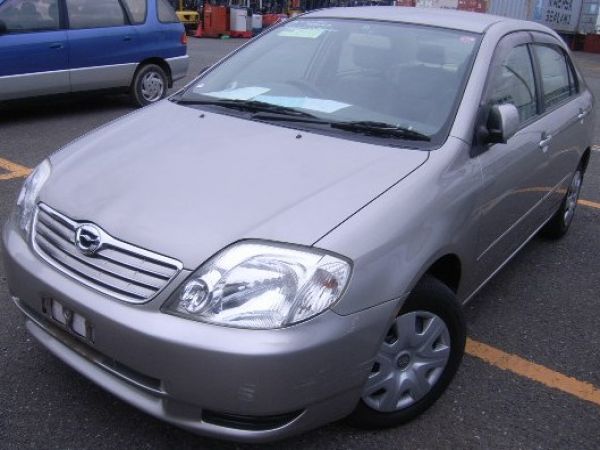Each year, an estimated 400,000 young Kenyans are being unleashed into the boda boda sector without any training or medical and social safety protection.
Investigations show that Kenya is condemning thousands of young men barely out of their teens, and who naively manouvre motorcycles like bicycles along deserted village paths, to the unforgiving highways.
We have uncovered the underbelly of a multi-billion shilling sector where operators have been left on their own to ride their “death machines” without any licences or insurance cover.
The results are grim — the roads are sending hundreds to their graves, in the process creating a growing army of widows and orphans.
The effect of this, as the Boda Boda Association of Kenya Secretary General Ken Onyango explains, is the death of thousands of riders in their most productive years, killed in their quest to eke an honest living to support their families.
Shocking deaths
“Since 2013, we have lost 4,000 riders on the major highways. The number from smaller roads is also significant. The numbers are rising every year and we are also losing very many passengers and pedestrians. It is time to stop the carnage,” he adds.
Figures from National Transport and Safety Authority (NTSA) show that in the last six years, the number of riders dying annually has been increasing steadily from 481 in 2013 to an all time high of 836 last year.
Already, 171 riders have lost their lives this year in accidents which have affected 3,539 operators, leaving 285 on wheelchairs with amputated limbs and nursing very serious injuries.
NTSA Deputy Director of Communications Dido Guyatu said most of the accidents are caused by riders who operate their motorcycles under the influence of alcohol or drugs.
Other causes, she added, were as a result of speeding, overloading and carrying excess passengers.
Majority of the riders breach NTSA regulations, which stipulate that loads should not exceed 15 centimeters width beyond the handle bars.
The regulations further stipulate that a load’s height must not exceed two metres from the ground and that its rear projection should not exceed 60 centimeters the length of motorcycle. It should also not be dragged on the road.
Guyatu also attributed lack of training and unlicensed and uninsured riders as well as increased number of underage riders.
There are an estimated 700,000 riders in the country. Kenya National Bureau of Statistics (KNBS) data shows that between January and July 2018 alone, some 105,323 newmotorcycle units were registered.
What is even more worrying is that 70 per cent of the estimated 1.3 million riders do not have insurance covers going by the Boda Boda Association of Kenya Association. “We have 1.3 million operators who were doing business according to last year’s statistics. Our records show 70 per cent of them do not have any form of insurance because the relevant authorities do not sensitise them,” Onyango added.
A joint 2018 research by the government and National Crime Research Centre concluded that majority of the boda bodariders were males (97.4 per cent) who were mostly aged between 18 and 40 years although the majority (38 per cent) are between 26-33 years. According to the research, 76 of the riders operating in Kenya are married.
The report also found that there was no database of all bodaboda operators in Kenya because the industry has evolved without a coherent and comprehensive legal framework to govern it.
What rules?
“This study found out that some boda boda riders committed petty and major violent crimes. Motorcycles have become a major facilitator in commission of crimes,” it said.
The carnage is not confined to the cities and big urban centres. It has been devolved to the counties, where there are no functional driving schools, leaving some enterprising riders to ride their destruction.
“There are very many riders who do not know the difference between riding a motor cycle on a busy highway and speeding on a neighbour’s bicycle back in the village and have no knowledge of the traffic rules and the highway code,” Onyango said.
The country, Onyango warns, is paying dearly because of ignoring the sector, which is playing a pivotal role in transporting millions of Kenya.
SOURCE: standardmedia.co.ke







![Top 20 Used Cars to Avoid Buying in Kenya – [PHOTOS]](../../../blog/wp-content/uploads/2013/11/top-used-unreliable-cars-to-avoid2-80x60.jpg)

![Here are some of the best tuned cars in kenya by state of the art garages [PHOTOS]](../../../blog/wp-content/uploads/2013/11/29402_10151301757042065_340470732_n-e1384498044289.jpg)


![Top 20 Used Cars to Avoid Buying in Kenya – [PHOTOS]](../../../blog/wp-content/uploads/2013/11/top-used-unreliable-cars-to-avoid2-100x70.jpg)






